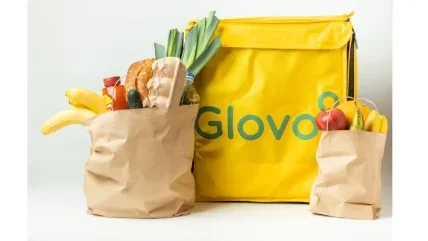
The Commission has fined Delivery Hero and Glovo, two major food delivery companies, a total of €329 million for participating in a cartel in the online food delivery sector. In particular, the two companies (i) agreed not to poach each other’s employees; (ii) exchanged commercially sensitive information; and (iii) allocated geographic markets. The infringement covered the European Economic Area (‘EEA’) and lasted four years. Cartels like this reduce choice for consumers and business partners, reduce opportunities for employees and reduce incentives to compete and innovate.
Both companies admitted their involvement in the cartel and agreed to settle the case. This is the first decision where the Commission finds a cartel in the labour market and the first time it sanctions the anti-competitive use of a minority share in a competing business.
The infringement
Delivery Hero and Glovo are two of the largest food delivery companies in Europe. They deliver food (prepared by a restaurant or a professional kitchen), grocery and other retail (non-food) products to customers ordering from an app or a website.
In July 2018, Delivery Hero acquired a minority non-controlling stake in Glovo and progressively increased this stake through subsequent investments. In July 2022, Delivery Hero acquired sole control of Glovo.
The Commission has found that, from July 2018 until July 2022, Delivery Hero and Glovo progressively removed competitive constraints between the two companies and replaced competition with multi-layered anticompetitive coordination. In particular, the two companies agreed:
- Not to poach each other’s employees. The shareholders’ agreement signed at the time Delivery Hero acquired a minority non-controlling stake in Glovo included limited reciprocal no-hire clauses for certain employees. Shortly thereafter this arrangement was expanded to a general agreement not to actively approach each other’s employees.
- To exchange commercially sensitive information. Exchanging commercially sensitive information (e.g., on commercial strategies, prices, capacity, costs and product characteristics) enabled the companies to align and influence their respective market conduct.
- To allocate geographic markets. In particular, the two companies agreed to divide among themselves the national markets for online food delivery in the EEA, by removing all existing geographic overlaps between them, by avoiding entry into their respective national markets, and by coordinating which of them should enter in markets where neither was present yet.
All the abovementioned practices were facilitated by Delivery Hero’s minority shareholding in Glovo. Owning a stake in a competitor is not in itself illegal, but in this specific case it enabled anti-competitive contacts between the two rival companies at several levels. It also allowed Delivery Hero to obtain access to commercially sensitive information and to influence decision-making processes in Glovo, and ultimately to align the two companies’ respective business strategies. This shows that horizontal cross-ownership between competitors may raise antitrust risks and should be handled carefully.
The Commission has considered that the three anti-competitive practices constitute a single and continuous infringement, covering the EEA andamounting to an infringement by object under Article 101 of the Treaty on the Functioning of the European Union (‘TFEU’) and Article 53 of the EEA Agreement.
Fines
The fines imposed on both companies were set on the basis of the Commission’s 2006 Guidelines on fines. In setting the fines, the Commission considered various elements, including the multifaceted nature of the cartel, the fact that it covered the entire EEA, its overall duration, and the cartel’s evolution over time, with periods of lesser cartel intensity. In addition, the Commission applied a standard reduction of 10% to the fines, in line with the Commission’s 2008 Settlement Notice, as both companies acknowledged their participation in the cartel and their liability.






